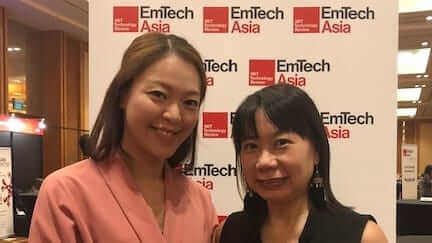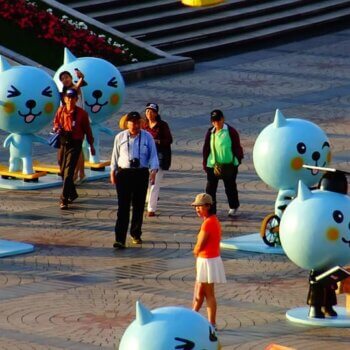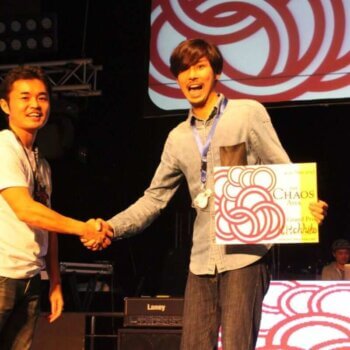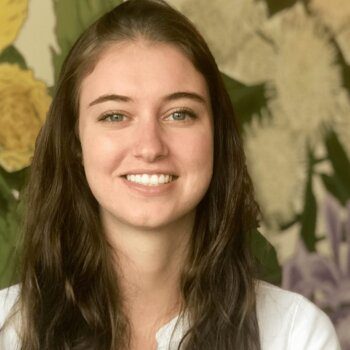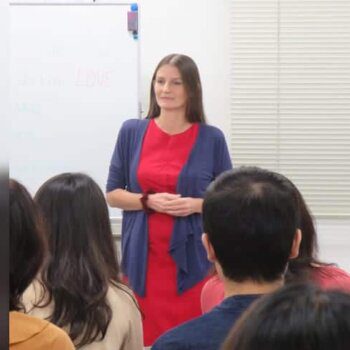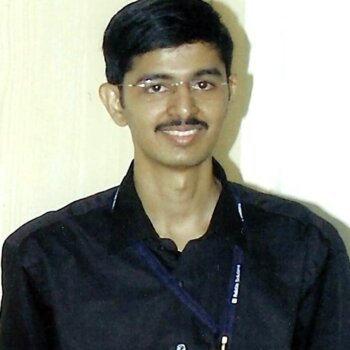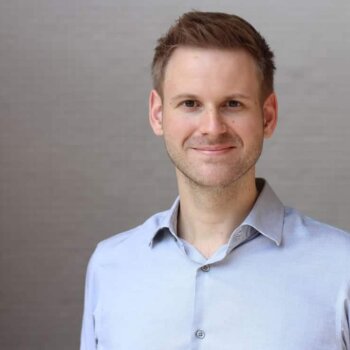(Women on Top in Tech is a series about Women Founders, CEOs, and Leaders in technology. It aims to amplify and bring to the fore diversity in leadership in technology.)
I met Cathy at EmTech Asia where the world’s most influential leaders and innovators driving the next generation of technological breakthroughs gather. She is the co-founder of OPER Technology Limited, a biotechnology company and a spin-off from Hong Kong Baptist University that aims to commercialize and make practical use of their academic research findings on nanomaterial-based technologies. She is also a Senior Research Associate of Hong Kong Baptist University. OPER Technology is currently a member of the Incu-Bio Programme of Hong Kong Science and Technology Parks Corporation.
What makes you do what you do?
I haven’t thought I would be a woman entrepreneur because I graduated with a Ph.D. degree in Neuroscience. I think I will be a scientist forever. But in 2014, in Hong Kong Baptist University, we had a press conference in our technology, “Autologous Neural Stem Cell Harvest”, and told people that there would be a potential treatment for the neurodegenerative disease patients.
At that time, I thought I was just doing an academic presentation, but later we found out that there were tons of patients looking for us and requesting if they could be the first volunteers to do this clinical trial. And this is why I know, my technology is not only for academia but also an application to help the patients. The value of technology actually depends on the application how we can bring a great impact to the patients.
That is why we went to set up a start-up, and commercialize our technology to really help the patients. Because it is interesting that if this technology stays in the university, I can hardly do the fundraising. So, I have to just get out of my comfort zone and learn to be an entrepreneur. It is funny at first I did not know what P&L means. I have met a lot of difficulties in the beginning; but, I am glad that there are a lot of angels around helping me how to excel in my business.
How did you rise in the industry you’re in? How did you end up rising a startup? And what are the first few years like?
It is quite a very long story. People may think that if our technology is for the incurable diseases, it will be easy to get fundraising. But now, I have found that people are actually quite hesitant to invest in biotechnology. They would love to invest in apps maybe because it is easy to understand. They do not understand the potential of the biotechnology, and it is really sad.
What we really want is to find a great strategic partner, like some international pharma because they have a good experience on how to bring the clinical study from bench to bed. So, we tried to join many different competitions to draw their attention and now we have won more than 36 international awards. It is a really big achievement and it helps us a lot.
Why did you take on this role in a startup?
I have met many different patients. They all have the same requests, and they just want to get recovery. It really motivates me to continue what I should do. Moreover, I am the one who knows the technology very well and If I do not do it, who will?
Do you have anyone in the industry to help you along the way?
I am very glad that I have a very good Ph.D. supervisor. He is really supportive, he gives me a lot of support and some insights on how I can bring this technology in the industry. He provides a lot of good advice. I also joined the incu-bio program in Hong Kong Science Park; it is an amazing platform especially for us, who knew nothing about business. They teach us the basic knowledge about business – how to run your business or, for an example, how to do a P&L. It helps us understand more of the side of the business and also provides a platform for us to connect with different people like investors and other experts.
Do you currently have a team already? And are you currently generating revenue? Or are you still seeking? How did you draw the team and who are your advisors?
In our team, we have seven people. And we have the same passion, we have the same goals, we fight for the chance to find different fundraising sources for the first clinical trial in the world.
My first advisor is professor Ken K.L. Yung, He is also the chairman and the co-founder of this start-up. Actually, there are a lot of great people in the world. I also have another mentor and she is from France. Her name is Diana Viola, she is the CEO of the PharmaBoardroom. She is an amazing woman, she advises me how I should do for investment, how to connect with other people and how to pitch. Also, she understands the difficulties a woman entrepreneur will encounter. I met her at a conference in Hong Kong. The first time we talked she was quite surprised that I did not have a mentor in Hong Kong and she believes that women entrepreneurs have to group together. I am just glad to have them as my two very important mentors in my life.
Why don’t you have something in Hong Kong? Why is it not common? This is interesting because I always have the challenge. I know China is very progressive, and in Hong Kong, why is it like this?
I think for the innovative technology, they just had this idea a few years ago because the ecosystem was not that mature; but now they already know they have to do something about it. Even so, because it is not that mature yet, we have to count on ourselves at the very beginning.
I know they (China) are very active. But in Hong Kong, our funding source is not that large. Hong Kong focuses more on financial banking, real estate, etc. and not on innovative technologies; that is why somehow they lag behind, but they are trying to do some improvement. And, I am happy to see they are doing something to help us.
What does your technology actually do and who does it help?
Neurodegenerative diseases like Alzheimer’s disease, Parkinson’s disease, and even stroke are still considered incurable. Majority of the current treatment we have can only relieve the symptoms, but there is no way to replace dead or dying neurons from the current treatments now. We think we have to do something to provide a cure to patients. We have a patented nanoparticle, and they can precisely locate neural stem cells from the patients and they are magnetic in nature – so we can use the magnetic field to detach these neural stem cells from the patients to repair the neurodegenerations to replace the dead or dying neurons. This is the only way to treat these diseases. And people may think they can use other stem cells like the IPSC stem cell. I will say yes or no because these stem cells might cause them some side effects. Just as they have the ethical issue, they also have a genetic instability problem, and these stem cells may induce tumor formations because they have some genetic modifications. That is why Autologous Neural Stem Cell will be the best candidate to serve this purpose: to help the patient to have a full potential recovery from these diseases.
Cost-wise, has it shown to be cost-effective? Are you working with human patients?
Now that we know that our nanoparticle can efficiently extract more than 80% of the cells and we have seen it work with our stroke patient. We had very outstanding results, and we could see that after the transplantation they could actually have an almost full recovery from stroke.
We are currently raising funds. We plan to do the first clinical trial in the world. This is a very meaningful job for me.
Now as a leader, how do you support development and keep growth in talent? And how do you find more talent for yourself in terms of diversity?
Now, OPER technology is a renowned biotech-company in Hong Kong, and hopefully in Asia in a row. We want to recruit more talents, but they need to have the same passion as us because it may not be an easy path to get the approvals from the CFDA and FDA. Not because our technology does not work, but because of the fact that the procedure is really complicated. I want our staff to have the same passion and know what they are doing. It is very important they know what we are striving for. Our staffs are from Hong Kong, but we will have two more staff from overseas very soon.
Do you consciously or unconsciously support diversity? And why?
What we want to solve is a global problem. So, we want more diversity with more people around the world to fight for our technology.
Do you see that as a scientist they think differently when they are from other cultures and countries?
I think it is quite interesting. For a scientist, they always have the same goals: to do something valuable for the patients. That is why I really love to hire more scientists because we have one goal: to do something that is valuable and meaningful to change the world.
What does it take to be a great leader in your industry? What have you learned in order to be a good leader in your industry?
I think the most important element to be a great leader is that they have to be open-minded, they have to think of all the possibilities because business changes every second. If you won’t think of the possibilities, you will be stuck there and you will not go for something better or something meaningful.
Any advice for others?
If you find something that you really like to do, you just go for it and be yourself. Do not get distracted by others. Maybe your mom does not want you to be a scientist because you know that for a woman, they think being a scientist is a boring job and you can not find a husband. I am sure the world is different now. Just go for it.
If you’d like to get in touch with Cathy N.P. Lui, please feel free to reach out to her on LinkedIn. https://www.linkedin.com/in/cathy-n-p-lui-b0874199/
To learn more about OPER Technology Limited, visit www.opertechnology.com
